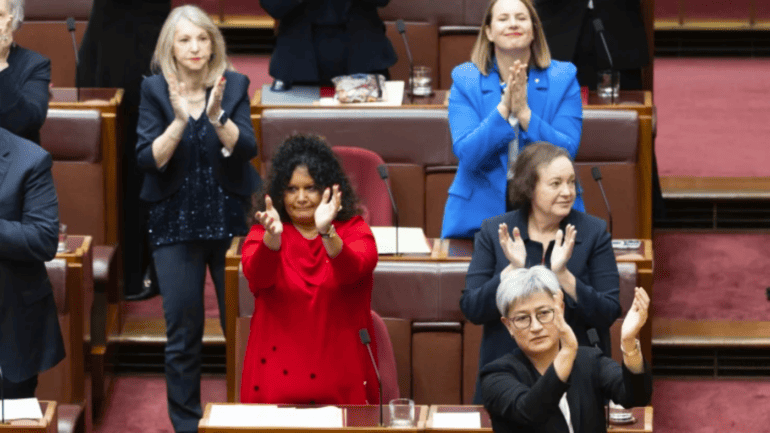After talking about a referendum on a First Nations Voice to Parliament for the entire year, the bill has finally passed the Senate.
But what does ‘passing the Senate’ mean for when we’ll be asked to cast our vote later this year?
This week on Blak Matters, Teela and MC explain what is now kicked into motion for the ‘Yes’ and ‘No’ campaigns with this key legal step, as well as what you can expect from the pamphlets set to appear in your letterbox soon.
Like MC, many Australians may have been confused why the Senate had to vote on the bill for the referendum… wasn’t it already “a thing” that was happening?
Teela explains the passing of the bill was a part of the formal referendum process and to change legislation, no matter what that legislation is, it must pass both houses of parliament.
A First Nations Voice had already passed the lower house, but this week it finally passed the upper house, formalising a referendum must take place within two to six months.
“In order to trigger a formal referendum process, and for the campaign proper to commence, the legislation, that is to change the Constitution in relation to the Aboriginal and Torres Strait Islander Voice, it had to pass both houses,” Teela said on Blak Matters.
“The lower house, the House of Representatives, is the people that we elect, the legislators essentially and anything that gets through that house needs to also be check and balanced and passed by the upper house, the Senate.
“In relation to this historic moment, which it was, it got passed by 52 to 19 for and against, and the officials within that house put on the record the words of the legislation.”
With the bill officially passed this week, this means Australia will hit the polling booths sometime this year – this date yet to be set by Prime Minister Anthony Albanese.
Campaigners both supporting “Yes” or “No” will now advocate their case, which will include pamphlets being distributed into Australians’ letterboxes.
“It sets the motion that now politicians have to formally create the “Yes” case and the “No” case,” Teela said.
“And the law says they get to write a pamphlet of no more than 2000 words for each case that they’re making.
“The hard work just starts for the nation now… it’s happening.”
Blak Matters provides an inclusive, authentic exploration of First Nations issues from a First Nations perspective. Delivered as an honest but positive conversation between friends, MC & Teela Reid, in under 20 minutes. Listen now on the Listnr app.
